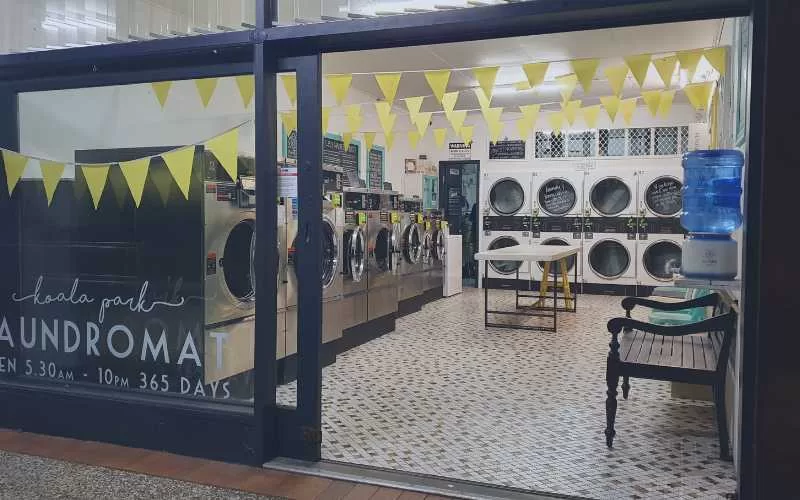Top 20 E2 Visa Business (Franchises 2025)

Are you an investor on the hunt for a one-way ticket to America? An E2 visa business venture could be your golden ticket.
Whether it’s creating a franchise consulting firm or obtaining an already established company, you’ll be able to move yourself and any members of staff with ease.
However, firstly there are several requirements that must come into fruition in order for the visa application and investment process to smooth over: eligibility is key!
Are you a foreign investor looking for an E2 visa? If so, we’ve got the perfect list of 20 opportunities that qualify.
But first, let’s take a look at what constitutes an E-2 visa and which types of businesses have the highest likelihood to be accepted.
What Is an E2 Visa?
If you’re a foreign national wishing to invest in the United States, then an E2 Visa – also known as a Treaty Investor Visa – may be right for you.
This type of nonimmigrant visa allows individuals to enter the US and devote their finances to establishing or running a business based upon treaty relations with the US. To qualify, one must come from a nation that has such treaties in place and has made substantial investments toward this effort, ensuring that your venture is operationalized is key here!
Generally, a substantial investment requires at least $100,000. Additionally, foreign entrepreneurs must invest in existing businesses that employ American citizens and create job opportunities for them; preferably three or more positions.
The sole purpose of the enterprise should not be to serve only foreign nationals but also to provide employment chances for United States residents as well.
What Businesses are Best for E2?

The E2 visa allows treaty investors to own and operate a U.S. business. To qualify, the business must demonstrate present or future capacity to generate:
more than enough income,
create jobs,
and make a significant economic contribution.
Not every business qualifies. Your investment capital must support an enterprise that makes commercial sense and gives you operational control. Below are four business types for your E2 visa application.
Franchises
Franchises are a top pick for E2 investors from treaty countries. The established model, reputable brand, and integrated support significantly lower the risks of starting a new venture. It makes it easy to show a substantial investment and a clear path to business ownership.
The franchisor provides training and systems, while you are in charge of operations.
Immigration officials often view franchises as established enterprises with strong potential. Still, it is better to research the franchisor’s track record, total investment costs, and ongoing fees.
Consulting Businesses
If you have industry expertise, a consulting firm can be a flexible and cost-effective choice. It lets you build a business around your skills and grow over time. That growth potential shows future capacity, which matters when applying for an E2 visa.
To meet requirements, your business plan must be specific and professional. Define your services, target market, and how you plan to scale. You should also commit enough capital—often $50,000 or more—to show serious intent.
Buying an Existing Business
Purchasing an existing business can give you a faster start. You gain a team, customer base, and operational structure from day one. It helps show present capacity and makes it easier to prove job creation and long-term viability.
Like any business move, due diligence is essential. It is important to thoroughly review all financial records, contracts, and liabilities before making any investments.
Multinational Transfers with an E2 Visa
Some companies from treaty countries use the E2 visa to transfer key staff into U.S. operations. It must be a managerial position or require specialized knowledge.
This route is often a strategic alternative to other visa categories like the L-1, especially when the company and employee share the same nationality.
Not sure where to begin?
We have listed 20 E2 visa business ideas (franchise) to help you find the right fit and build a strong foundation in the United States.
20 Best Franchise Opportunities For E2 Visa
The E-2 visa opens a unique path for entrepreneurs from treaty countries to build and operate a U.S. business. With the right concept, a significant investment, and a detailed business plan that underlines job creation and long-term viability, you can position yourself for approval and profitability.
Below are 10 franchise concepts that align with E-2 requirements and deliver real-world growth potential.
1. Pizza Franchise

Pizza isn’t just dinner—it’s an American institution. That makes it a prime entry point for E-2 investors. With dine-in, delivery, and carryout options, revenue streams accumulate quickly.
You’ll likely spend your days overseeing staff, managing inventory, and keeping everything moving in sync with the franchisor’s system. The startup costs—think of ovens, signage, and marketing—also demonstrate the capital-at-risk element that immigration officers want to see.
And if you’re thinking long-term? Catering, multi-unit expansion, and new delivery channels can all drive growth beyond slice number one.
2. Ice Cream Franchise
Who doesn’t love a scoop of success? Ice cream franchises combine low overhead with a high-volume product that thrives in malls, tourist areas, and walkable communities.
You’re not just selling dessert—you’re managing staff, rotating seasonal flavors, and building a brand that becomes part of local routines. Initial investment typically includes equipment, signage, and location setup, all of which satisfy E2 visa capital requirements.
Bonus: profit margins are sweet, and customer loyalty is sticky. It’s a feel-good business with serious potential.
3. Bakery Franchise
Warm bread, hot coffee, and a steady stream of foot traffic—bakeries hit the comfort-food trifecta. And they offer more than just carbs; they offer consistency.
Expect to handle quality control, team training, and production schedules while delivering pastries that people come back for daily. Your investment goes into commercial ovens, display cases, and storefront renovations—clear, quantifiable capital that supports your E2 visa petition.
Many food franchise systems allow you to grow into catering, wholesale deals, and online sales, making this a high-potential (and delicious) path to business ownership.
4. Chicken Sandwich Franchise

It is not just a meal, but a fast-casual arms race. Chicken sandwich brands are booming, with simple menus, high demand, and drive-thru potential fueling growth.
What you invest in is a dialed-in operational model and brand recognition. Day-to-day, you’ll focus on staff management, food quality, and customer experience. The capital requirements—equipment, real estate, training—make this a strong E2 visa contender.
If you’re looking to ride a flavor wave with real staying power, chicken is on trend.
5. Chicken Wings Franchise
Wings bring in loyal customers, especially on game days, and this franchise model thrives with a strong delivery and takeout component.
You will manage scheduling, supply ordering, and customer service while leaning on the franchisor for marketing and operations support. Startup costs often include vehicles, POS systems, and kitchen setup—all E-2 eligible investments.
Add in branded sauces, catering deals, or new units, and you have room to spread your wings. It is a spicy, scalable niche for the right hands-on operator.
6. Residential Cleaning Franchise

Low overhead, high demand, and simple startup, this franchise type is built for quick wins. Customers want clean homes and reliable service, and you will deliver exactly that.
Managing a small team and coordinating cleaning schedules are your primary tasks. Your investment will mostly go toward training, equipment, and brand support, best for meeting E2 visa requirements.
Recurring service contracts make revenue more predictable, and scaling is straightforward: more homes, teams, and profit.
7. Commercial Cleaning Franchise
Offices, schools, and healthcare facilities need reliable cleaning services, and they often sign long-term contracts to get it.
Your job includes managing accounts, supervising teams, and meeting industry-specific regulations. The franchise system provides operations playbooks, making growth more accessible.
With moderate startup costs and new job creations, this model fits the E2 visa framework like a glove. Bonus: scale up by landing regional contracts or expanding into niche sectors like medical or industrial cleaning.
8. Laundromat Franchise

Essential service? Check. Predictable revenue? Check. Minimal staffing needs? Also check. Laundromats are the workhorses of the semi-passive franchise world.
Daily operations are relatively light—you will focus on maintenance, machine uptime, and customer service. Add-on services like wash-and-fold, vending, or dry cleaning can drive more revenue per square foot.
Your initial spend covers heavy-duty equipment and leasehold improvements, which are E2-compliant investments. Expand with multiple locations, and you are building a utility-style business with serious longevity.
9. Junk Removal Franchise
If you do not mind a little grit with your growth, junk removal can be surprisingly profitable. People and businesses pay good money to make their clutter disappear.
This franchise model involves managing crews, scheduling pickups, and handling disposal or recycling logistics. The upfront investment—usually trucks, branding, and training meets E-2 visa capital thresholds fast.
You can scale quickly by adding trucks, building partnerships with realtors or contractors, or expanding into demolition or donation pickup services. It is a dirty job, but it could clean up nicely.
10. Insulation Franchise

Insulation might not sound glamorous, but the margins are rock solid, and demand is rising thanks to energy-efficiency incentives.
You will manage client assessments, coordinate crews, and ensure compliance with building codes. Most investments go toward equipment, training, and marketing—all great for showcasing capital at risk.
This is a B2B and B2C hybrid with year-round work. There is strong potential to expand into adjacent services like HVAC or energy audits. If you prefer a future-focused franchise with utility and impact, this one offers insulation and protection from market volatility.
11. Fitness Franchise

The Fitness franchise is an attractive investment in a market that emphasizes wellness and personal health. Operating a fitness studio or gym involves managing memberships, overseeing staff (instructors and trainers), and maintaining equipment.
Some franchises offer specialized classes like yoga, Pilates, or high-intensity interval training (HIIT), while others might focus on general fitness. With the growth of digital fitness, many franchises also provide hybrid membership models that combine in-person and virtual offerings.
The scalability comes from increasing membership, offering new programs, or opening additional locations. For an E-2 investor, the potential for recurring revenue from membership fees and the strong demand for health-focused services make this an appealing option with a solid business plan.
12. Hair Salon Franchise
Hair salons remain a fixture in the service sector thanks to ongoing demand for cuts, color, and styling. As an owner, you will oversee stylists, manage inventory, and deliver a top-tier customer experience. These businesses thrive on loyalty and repeat visits, with strong potential to expand into beauty services like nails, waxing, or massage.
Revenue typically comes from a mix of services and product sales, which can scale through premium offerings or multiple units. With the right location and staff, this can serve as a sleek, low-barrier entry into the U.S. market. And seamlessly fit for a new business that balances style with longevity.
13. Pet Care Franchise

Americans are spending more on pets, and they are not cutting corners. Pet care franchises capitalize on that trend by offering grooming, daycare, boarding, and retail products. You will lead a team of groomers and caregivers while creating a safe, welcoming space for pets and their humans.
Customer retention rate is high, especially when services are bundled or personalized. Add-on options like mobile grooming or boutique retail can create recurring revenue and help differentiate your location. This model is also well-suited for family members who want to help manage operations or take on administrative roles.
14. Senior Care Franchise
As the population ages, the need for non-medical in-home care continues to grow. Senior care franchises provide help with daily tasks, companionship, and personal care, all while offering peace of mind to clients and their loved ones.
You will be responsible for hiring and training caregivers, maintaining compliance with local regulations, and ensuring consistent service delivery. This business model often scales through contracts with health networks by expanding geographic coverage.
So, if you want a franchise that combines purpose with profitability, this option is ideal for growth and impact.
15. Automotive Repair Franchise

Oil changes, brake repairs, and diagnostics are essential services. Regardless of the economy, drivers consistently require repairs, and they trust franchise brands to complete the job correctly. Automotive repair offers a financial history of stability and solid margins, particularly in high-traffic areas.
You’ll manage mechanics and front-office staff, oversee service quality, and handle inventory. Many concepts come with strong name recognition, which helps bring in repeat business. Growth levers include opening additional bays, offering fleet services, or expanding into specialty work like electric vehicle repair.
This type of franchise business is well-suited for a hands-on operator who wants to scale a proven system with long-term demand.
16. Real Estate Franchise
Buying into a real estate franchise gives you access to brand recognition, proven systems, and a ready-made network. You will recruit and train agents, help clients navigate property transactions, and use the franchisor’s marketing tools to stay ahead.
Whether selling homes or managing properties, real estate lets you scale into new markets or focus on niches like luxury or rentals. It also offers a way for family members or unmarried children to participate without taking on a high-overhead business.
Partner with a law firm to prepare your E-2 visa application. Your business plan should show how your team structure supports active ownership and long-term growth. This business requires serious effort, but the potential return is worth it.
17. Fast-Casual Restaurant Franchise
Fast-casual restaurants combine quality ingredients with quick service, making them a popular choice for today’s busy consumers. These concepts often feature customizable menus and established brand experiences.
As the owner, you’ll manage staff, oversee daily operations, and ensure excellent customer service. You can grow by adding online ordering, catering services, or additional locations.
E-2 visa investors appreciate this sector for its structured operations, strong job creation potential, and opportunities for multi-unit growth.
18. Travel Franchise
A travel franchise lets you turn your passion for exploration into a business. You will plan luxury vacations, group tours, or corporate trips using booking tools, supplier networks, and franchisor support.
This business model is flexible. Many franchisees work from home or a small office. You can specialize in areas like destination weddings or cruises and build long-term relationships with repeat clients.
Its lower startup costs and minimal overhead make it especially appealing to E-2 visa investors who want a scalable, service-based business that is easy to manage and grow.
19. Landscaping Franchise
Landscaping franchises offer essential services like lawn care, garden design, and outdoor maintenance. The client base includes homeowners, commercial properties, and property managers, which helps create steady cash flow.
You’ll manage a team, coordinate schedules, and handle equipment and job quotes. Many franchises also allow you to offer snow removal and other seasonal services for year-round income.
Landscaping aligns well with E-2 visa requirements, thanks to its job creation potential and strong local demand. It is best for aspiring entrepreneurs who want to build something hands-on and scalable.
20. Technology Services Franchise (IT Support)

Tech support is now a core need for businesses of every size. A technology franchise deliver services, such as cybersecurity, data backups, and cloud solutions to companies that lack in-house IT.
You will lead a team of technicians, secure recurring service contracts, and grow through referrals and client retention. Many models offer opportunities to expand into industries like education and healthcare.
For E-2 visa investors with a background in tech or interest in digital services, this franchise model offers consistent revenue, strong margins, and room to scale quickly.
Conclusion
E-2 visa franchise opportunities give international entrepreneurs a clear path to owning a business while maintaining legal status in the United States. The key is selecting a legitimate, profitable operation that supports job creation and personal income.
Whether you are interested in food service, real estate, technology, or home-based businesses, there is an E-2 friendly business option that fits your goals. Talk with a franchise expert E-2 visa consultant to make sure you meets all the requirements. With expert guidance, you can build your future in the United States.